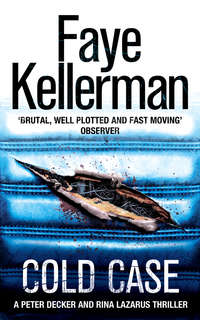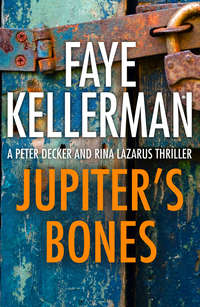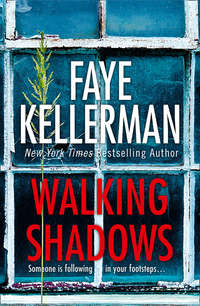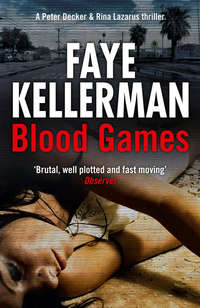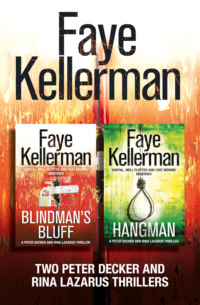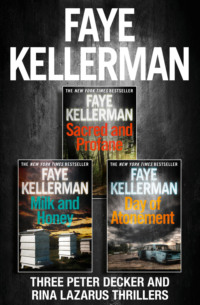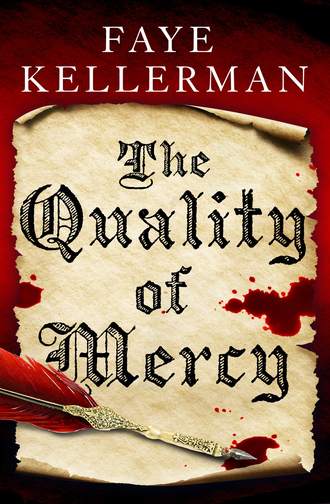
Полная версия
The Quality of Mercy
The old woman paused, then said, “I have endured many terrible things in my life, Becca, but faith has kept me alive. And clear drinking water can sometimes come from the rottenest of wells. Remember that. It could save your life.”
Rebecca looked at her, puzzled.
“Never mind,” Grandmama said. “An old woman is loose in her thoughts, as you are loose in your boots.”
She began cramming small bits of cloth around Rebecca’s feet, tickling them whenever she could. How she loved the sound of her granddaughter’s laughter, the echo of her own girlish joy. When the boots were sufficiently tight, Rebecca slipped on the doublet. The old woman tied up the sleeves, and meticulously pinned the young girl’s hair under the cap.
“Step away from me,” Grandmama commanded Rebecca. She admired the form. “The fairest man I’ve ever seen.”
Rebecca smiled.
“And where is your belt, sword, and dagger, young man?”
“I’ve ‘borrowed’ some of Thomas’s. He shan’t miss them for a few hours. They’re hidden in one of the hedges outside.”
The old woman reached out for Rebecca’s hands and kissed them. “Be careful among those ruffians.”
“I will.”
“Where will you go today, Becca?”
“Since the theaters remain open, I think I’ll go to Southwark.” Rebecca slipped on her gloves. “To that new theater, the Unicorn.”
De Andrada saw the young man leave through the window and smiled wickedly. So, the beautiful Rebecca had entertained a lover while her parents were away. If she were warmed from one man, how fiery she would be after two.
He grew hard between his legs as he opened the door to his closet. He tiptoed down the stairs, eager with excitement. He could feel himself upon her, smooth skin squirming under his body. She would protest—aye, maybe even pinch and bite. He liked it that way. Then he’d tell her he’d seen her young man—a skinny runt in yellow and black round hose, a fancy slashed doublet, and the cap with the feather—and the fighting would stop.
He snickered. What would she say when he threatened to tell her father? Would she plead with him, beg him to silence? Aye, he would be silent, but he had to get something in return. Having no choice, she’d have to capitulate.
He’d be rough with her, he decided, slap her around, bite the inside of her white thighs—bruise her well, the snobbish wench. Then as she wept, he’d thrust himself into her insides, already well wetted from her previous encounter. Aye, he’d replace the young man’s spare seed with a raging river of his own.
He grinned at the thought. Ruy Lopez had betrayed him, had made Ferreira de Gama the new Iberian contact for the mission, taking de Gama instead of him. Though the doctor had tried to downplay the significance of de Gama’s visit, he—Manuel de Andrada—had overheard the men speaking about de Gama. He had powerful ears, thanks be to Providence. A good piece of information to be used against Lopez when the time was right!
What flimsy excuses the witch doctor had offered when he and the snake, de Gama, were about to leave this morning.
Esteban is simply accompanying me to St. Bartholomew’s, Manuel. Nothing more. He wants to bring a bit of cheer to those hospitalized.
When de Andrada asked if he, too, could go with them, Lopez flatly refused. And the witch doctor had the gall to tell him it was for his own protection.
You’ve been quite weak the past few days with fever and water loss, Manuel. Better to convalesce away from the breath of the ill.
Aye, he’d been ill, but that wasn’t the reason he’d been deserted. Bartholomew’s had been a ruse. According to the stable boy, the horses hadn’t been pointed in the direction of the hospital.
Scheming behind his back again! Rebecca was owed to him as payment for his unappreciated service.
He placed his hand under his hose and stroked his throbbing erection. Shaking with lust, he touched the doorknob of Rebecca’s bedchamber, then turned it quickly and stormed his way inside.
His first reaction was one of confusion; the sheets were folded, properly made up. He searched the room, but there was no sight of her, no musky smells from a recent dalliance.
He closed the door and searched other rooms, only to find nothing suspect.
Where had they met?
Maybe the hag knew.
He walked down the stairs and opened the door to the old woman’s chambers. She looked up quizzically.
“Where is she?” demanded de Andrada.
The old woman smiled benignly. De Andrada went over to the poster bed and shook her violently.
“Where is Rebecca?” he screamed at her.
“Rebecca?” she said.
“Your granddaughter, you stupid sow!”
“Oh … aye, my granddaughter is named Rebecca.”
“Where is she?” de Andrada bellowed.
“She went with her mother … to visit my daughter, Maria. I have two daughters. One married Jorge Añoz, the other married—”
“Stow it, you old fart!” De Andrada paced. “She didn’t leave with her mother, hag. Where is she?”
“Ah, I remember now,” the hag muttered. “I do, I do, I do. She went riding with my grandson, Dunstan. Or was it Thomas? Or was it Ben?”
“You piece of brown turd.” De Andrada covered her face with the sheet. The little bitch had slipped through his fingers. “Who was that man?”
“Which man?” asked the old woman in a muffled voice.
De Andrada uncovered her face and said calmly, “The one with the feather in his brown cap. He just left the house not more than a quarter hour ago.”
“Which man?”
“Oh, never mind. You’re a blot on the Isle. I’d be doing everyone a service if I murdered you on the spot.”
The old woman cracked her thin lips into a smile.
“Aye, I would do it,” de Andrada said. “But why should I do any favors for a devil of a doctor?”
He turned around and stomped out of her bower, slamming the door behind him.
Chapter 14
Shakespeare saw the black shadow pass and felt a sudden chill. His mind was playing tricks again. Had not the sun been darting in and out of the clouds all afternoon? He was seeing ethereal things, hearing voices that were nothing more than the whistle of the wind. Harry’s ghost, or whoever it was, had shaken him more than he was willing to admit.
If the midnight visitor had been Harry’s ghost, then there lay a very serious state of affairs. A spirit would haunt only if the soul was unclean. And if it hadn’t been a specter, then some man had broken into his room, infused his drink with a potion, and clubbed him on the head. Either alternative remained unattractive.
Standing behind the backdrop of the stage platform, Shakespeare readjusted his chef’s hat and waited for Burbage to finish up his “Oath of Loyalty” speech. The play they were performing was one of the worst in their repertoire, written by a rakish clod named Dubbin who was inflicted with falling sickness. He claimed his fits were messages from angels. The jack was a false prophet to be sure, but no one dared dispute him. Burbage loved the book because it had many long, solo passages. Shakespeare considered the writing dull and ponderous. The humor was so dry that the groundlings didn’t understand it, and the gentlemen who did catch the puns seemed not to like them. Dubbin might have been touched by the divine, but his writings were anything but inspirational.
What the fellowship wouldn’t do to please Master Burbage.
Burbage, with his broad, sweeping gestures, exaggerated facial expressions, and deep moaning voices—all of his mannerisms stolen from Harry Whitman. But even Shakespeare had to admit that Burbage had learned his lessons well. He’d become the consummate actor—the only legitimate heir to Harry’s throne.
Robin Hart came up to Shakespeare and placed a hand on his shoulder.
“Old Rich is at it again.” The ’tire man frowned. “You should see him on stage, stomping over the hem of the robe. He’s going to rip the fabric! I just know it!”
Shakespeare smiled.
“Someone came around asking for you,” Hart said. “While you were taking dinner.”
“Who?”
“He didn’t say his name.”
Shakespeare felt a sudden prickling on the back of his neck.
“What did this nameless someone want?”
“He sends greetings to you from a mutual friend—a gentleman.”
“What was the gentleman’s name?”
“I don’t remember his name, either, save that he called him Master so-and-so. Hence, he had to be a gentleman.”
“You’re most helpful, Robin,” said Shakespeare.
“I’m simply a worn-out ’tire man, not a player, and I make no pretense of having an exceptionally sound memory, as the rest of you do.”
Shakespeare turned to him and patted his shoulder. “Did the nameless messenger mention the mutual gentleman’s name?”
“Aye, he did. It simply slipped my mind.” Hart thought a moment. “The name sounded like a fish,” he said.
“Master Herring?” Shakespeare asked.
“No, that wasn’t it.”
“Master Halibut?”
“Nay.”
“Master Gudgeon? Master Roach?”
“No, no. It wasn’t that at all.”
Shakespeare shrugged. His outward appearance was calm, but inside he was very taut.
“Mackerel,” Hart announced with a note of pride in his voice. “His name sounded like Mackerel.” He looked at Shakespeare and gasped, “Good God, Willy, you’re white.”
“Mackering,” Shakespeare whispered to Hart. “Was the gentleman’s name Master Mackering?”
“The very one,” Hart said. “What is it?” Hart gasped. “Heavens, do you think he meant the ruffian George Mackering?”
Shakespeare ignored the question and asked, “What did this ‘messenger’ look like?”
The color had suddenly drained from Hart’s face. “Look like?”
“Aye.”
“I … I know not how to describe him. I know it seems preposterous, but it was as though he had no face.”
“Did he have a beard?”
“I recall a beard. At least, I think I would have noticed had he been smooth-faced.”
“Tall? Short? Portly? Reedy?”
Hart closed his eyes and said, “I cannot picture his stature.”
“A big nose? Fat lips? The color of his eyes?”
“Nothing, Willy.” Hart sighed. “I’m sorry.”
“What did he sound like?” Shakespeare questioned.
“His voice sounded … unnatural. Deep, but hoarse.”
“An accent?”
“I remember not. He spoke so little.”
“Describe the clothes he was wearing,” Shakespeare pressed. “Surely you noticed them.”
Hart brightened. “I did. A thick woolen hooded cape, old boots caked with mud at the toes and heels. His doublet was much out of date, its skirt way below the waistline.”
“The colors of the garments, Robin?” Shakespeare asked.
Suddenly Hart felt cold. “His entire dress was colored black.”
Rebecca took a last bite of apple and dropped the core to the ground. A fat woman pushed against her—no doubt to get a better look at Burbage—and Rebecca pushed her back. In deference to Rebecca’s fine dress and beard, the woman retreated.
Rebecca smoothed out an imaginary wrinkle in her doublet. Surrounded by swine, she thought. Yet they were pure of heart, these vulgar groundlings. They laughed, cried, cheered the hero and booed the fiend, and if the play was wretched, the actors would know about it. The nobility in the upper seats were very well-mannered, but not an honest emotion passed through their bodies, not a true passion pierced their hearts. Twas better to stand with the groundlings, smell their foul breath, their sweat, piss, and vomit. Better to be shoved and pushed in their drunken stupor than to sit as a lady, escorted by a lord as beautiful as chiseled marble and equally cold to the touch.
What a lovely voice Burbage has, she thought. So commanding, it soared above the belches, coughs, and rude laughter and boomed out like cannon fire. She loved to listen to him, to look at him. He could be as graceful as if he danced the pavane, as forceful as if he marched to war. Often she would daydream of playing with him on stage, how it would be if he were Hero and she Leander, to be Thisbe to his Pyramus.
She raised her pipe, inhaled a whiff of tobacco and coughed. Heavens, the smoke was strong, and the odor stank like a dung heap. A filthy vice. But she loved the look of disdain elicited from the Puritans as she blissfully puffed away while walking down Paul’s. They thought she was doomed to Hell. Would they could know that, as a woman, she was cursed by her own private hell.
Burbage finished, and the setting was immediately switched. A boy came in carrying a sign that said KITCHEN. On the left side of the stage was a table on which rested a pot housing a squawking chicken, a butcher’s cleaver, and a plate full of entrails, the blood dripping to the floor.
The chef entered the platform through a door in the backdrop marked ENTRANCE. Today he was played by William Shakespeare. Rebecca always was drawn to Shakespeare’s comic performances. He hadn’t half the acting skill of Burbage, his voice being higher and more easily strained, losing projection when he shouted. But his eyes held her as none she’d ever seen. They were the palest blue, like fresh snow awash with sky, imbued with an unmistakable intelligence. She remembered them clearly at the burial grounds, staring back at her, questioning her own eyes. His countenance that day had been so somber, suffused with much pain, completely out of character with the doltish parts he usually played. She hadn’t been able to reconcile that man with the player, and so she’d stared at him. Of course, everything that day had been blurry, so very unreal …
She shooed the dark thoughts from her mind and returned her attention to the platform. Shakespeare was wearing a hat much too large, staggering around, trying to bring the bottle he carried to his lips. The crowd began to laugh. When the hat fell over his forehead and eyes, he stumbled about, then danced an exaggerated trip.
Rebecca found herself laughing along with the others.
Shakespeare raised the brim of the hat from his eyes and slowly, in drunkenly fashion, swaggered his way over to the table. Setting the bottle down, he grabbed the chicken, lifting the hapless bird up by the neck, and raised the cleaver. He swung the cleaver at the bird’s scrawny throat but cut only air instead. The audience howled with laughter.
Shakespeare stared at the crowd, wearing a look of confusion, then gaped at the chicken.
“Why are you still whole?” he cried. The bird was flapping its wings with distress, fluttering feathers in his face. Shakespeare trapped them in his mouth, then blew them at the crowd like a gust of snow. “You should be very much dead,” he explained to the bird. “Pouring out blood as freely as I piss out ale. Like thus.”
He picked up a handful of bloody innards and smeared it over the chicken.
“There,” he said. “Hold still, and by my will, I shall instill you to nil.”
He held up the cleaver, swung it forcefully, but again cut nothing. Again and again he whipped the cleaver through the air, each time barely missing the chicken’s throat. Finally he plunged the cleaver down onto the table and split a piece of sanguineous entrail in two, splattering blood all over his costume.
Not written in the book, Shakespeare groaned inwardly. Robin Hart was going to reproach him severely for the mess. Off to the left of the stage Shakespeare could see the ’tire man’s face fall.
Конец ознакомительного фрагмента.
Текст предоставлен ООО «ЛитРес».
Прочитайте эту книгу целиком, купив полную легальную версию на ЛитРес.
Безопасно оплатить книгу можно банковской картой Visa, MasterCard, Maestro, со счета мобильного телефона, с платежного терминала, в салоне МТС или Связной, через PayPal, WebMoney, Яндекс.Деньги, QIWI Кошелек, бонусными картами или другим удобным Вам способом.


